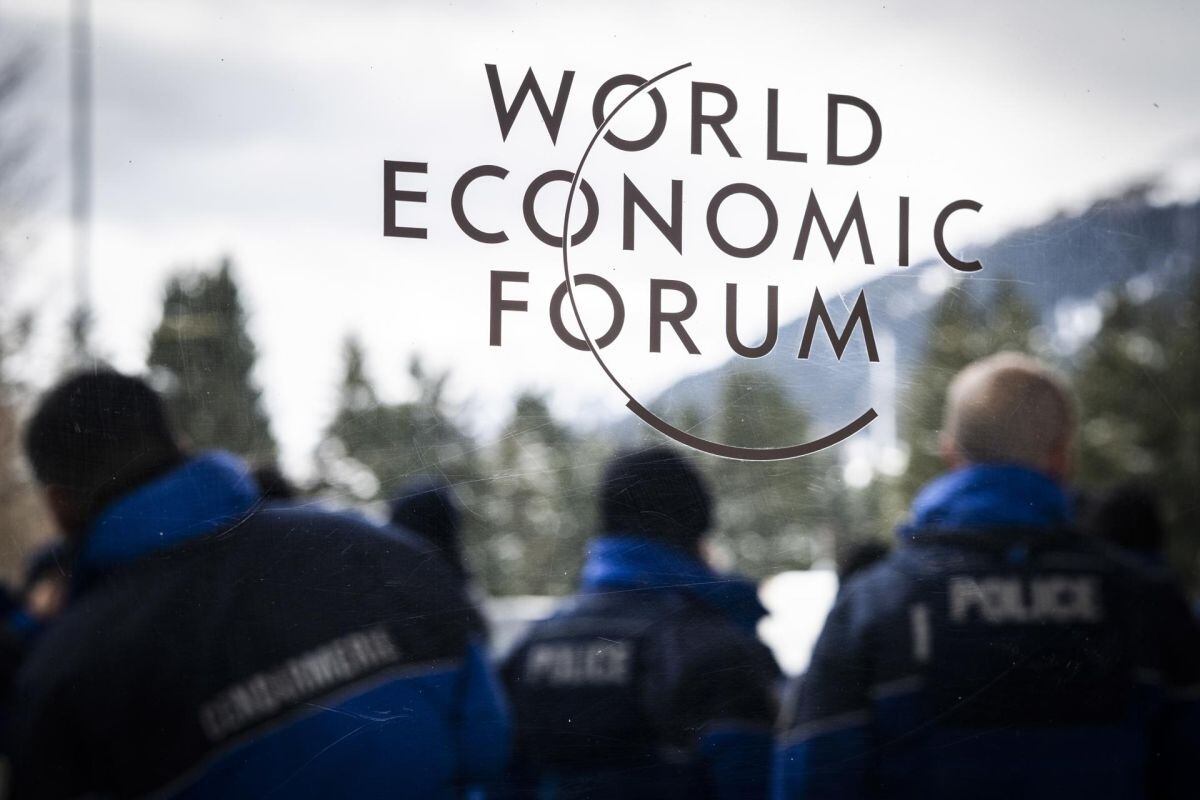
The snowy peaks of the Swiss station of Davos will host a new annual meeting of the World Economic Forum starting this Monday, an appointment that brings together the cream of political and business leaders who will discuss the enormous geopolitical and economic challenges, since the war Ukraine to a possible recession.
For the first time since the start of the pandemic, this 53rd edition, completely face-to-face, of the Davos Forum returns to its usual calendar, in the middle of the Alpine winter, in this small town immortalized by Thomas Mann in “The Magic Mountain”.
As then, the disease and the war fly over the environment, with the tails of the coronavirus pandemic and the Russian invasion of Ukraine about to turn one year old, but also with fears that this year 2023 will bring a global recession.
Hours before the meeting began, a survey carried out by the World Economic Forum revealed that two-thirds of the executives in charge of corporations and large international firms believe that there will be a global recession in 2023.
Private sector leaders who participated in the analysis acknowledged that they plan to cut costs significantly in response to the negative economic environment.
The outlook is especially pessimistic for Europe, where 100% of those surveyed foresee economic growth “weak or very weak” this year, a percentage that drops to 91% in the case of the United States, 68% in Latin America and 48% in China.
Although the debates -nearly 400 sessions until Friday the 20th- will open on Tuesday morning, the event started this afternoon with the presentation of the Crystal Awards to four outstanding “cultural leaders”: architect, activist and artist Maya Lin, acclaimed soprano Renée Fleming, and actors and humanitarians Idris Elba and his wife Sabrina Dhowre Elba.
They were awardedfor his work to promote environmental conservation, food security, the fight against climate change, mental health and education”, according to the organization.
As is traditional, the NGO Oxfam also came forward at the beginning of the Forum with a report that calls for raising taxes on large fortunes to 75% to reduce growing inequality and mitigate the effects of a “polycrisis” derived from the rise in inflation, the blows of the pandemic and the effects of phenomena such as droughts, cyclones and floods.
The main conclusion of the study is that if a wealth tax of up to 5% were applied to billionaires and billionaires, US$ 1.7 trillion (1.5 trillion euros) could be raised annually, which would allow 2,000 million people to get out of poverty. poverty, as well as funding a global plan to end hunger.
Public figures from 370 governments and international organizations are expected in this edition of the Forum, and among the ministers, the most numerous will be those of Economy, Finance, Energy and the Environment, which shows the recognition of the interdependence between economic growth , energy transition and environmental sustainability.
Among the speeches on Tuesday were those of the President of the European Commission, Ursula von der Leyen, the head of the Spanish Government, Pedro Sánchez, or the Chinese Vice Premier Liu He.
Latin America will be widely represented with 137 personalities of all categories, a record, according to what Marisol Argueta, senior director for Latin America of the World Economic Forum, highlighted today.
They will be representatives of 16 countries in the region, and among them politicians from 11 governments and three presidents: Guillermo Lasso, from Ecuador, Gustavo Petro, from Colombia, and Rodrigo Chaves, from Costa Rica.
According to Argueta, it is perfectly understandable that the president of Brazil, Luiz Inácio Lula da Silva, cannot attend less than two weeks after assuming power -even with the attempted coup d’état by the Bolsonaristas- but the forum is “very pleased with the representation of Brazil”.
The South American giant has sent the finance and environment ministers, and three governors, among them the state of Pará, chosen to preside over the Legal Consortium for the Amazon, and whose capital, Belén, Lula has already said is a city candidate to host COP 30.
“It is an interesting moment due to the alignment in South America on policies in the Amazon”, highlighted the person responsible for Latin America of the Forum, and also “a critical moment to promote cooperation between the different sectors and regional dialogue”.
Among the absences, for the second consecutive year, Mexico does not send an official delegation, something that Argueta regretted. “Countries like Mexico should be present,” he pointed out, and said that the Forum trusts that in future meetings there will be representation, even that the president comes before the end of his term.
Source: EFE
Source: Gestion
Ricardo is a renowned author and journalist, known for his exceptional writing on top-news stories. He currently works as a writer at the 247 News Agency, where he is known for his ability to deliver breaking news and insightful analysis on the most pressing issues of the day.












